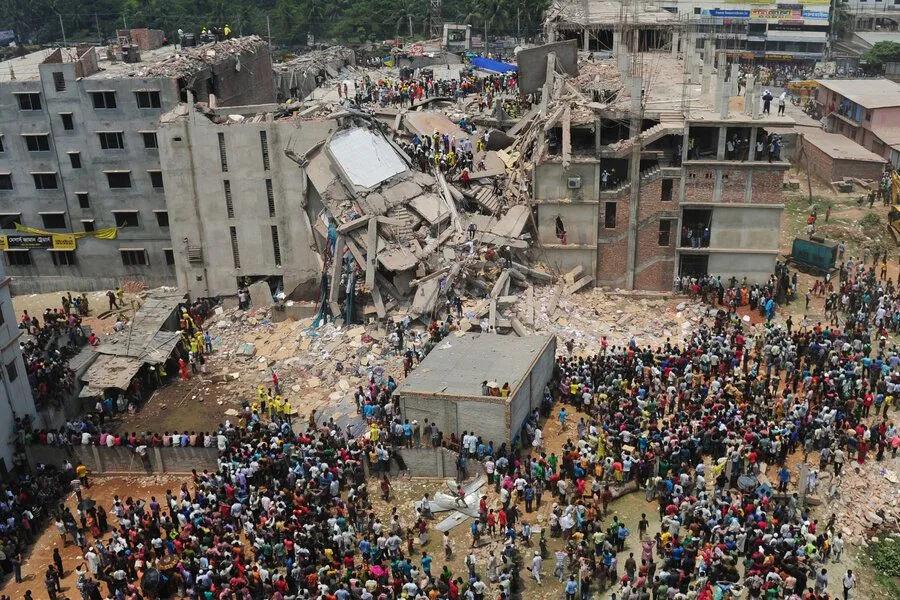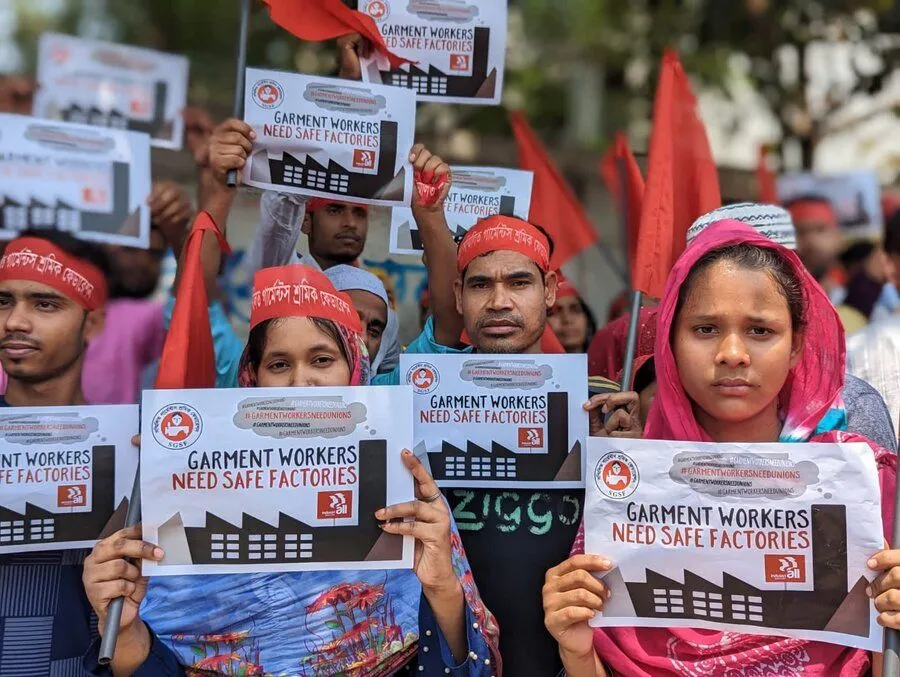Rana Plaza Collapse (Due Diligence)

On April 24, 2013, the Rana Plaza building in Dhaka, Bangladesh, tragically collapsed, killing more than 1,100 garment workers and injuring thousands more. The incident shocked the world and exposed severe shortcomings in workplace safety, labor conditions, and corporate responsibility within global supply chains. It became a defining moment for the garment industry and a catalyst for stronger due diligence expectations.
What Happened at Rana Plaza? Rana Plaza housed several garment factories producing for international brands. Despite visible structural cracks identified the day before, factory managers ordered workers to return to their stations to meet production deadlines. When the building collapsed, the failure to prioritize human life over profit was painfully evident.
Link to Due Diligence Due diligence refers to the responsibility of companies to identify, prevent, and mitigate risks related to human rights, labor conditions, and safety within their supply chains. The Rana Plaza collapse revealed how weak or absent due diligence can lead to catastrophic consequences.
Many international brands sourcing from Rana Plaza claimed they were unaware of the unsafe working conditions. However, due diligence is not simply about awareness—it requires active monitoring, auditing, and taking corrective actions to ensure workers’ safety and dignity.
Key Lessons for Due Diligence
- Supplier Monitoring: Brands must conduct thorough assessments of their suppliers, including building safety, emergency preparedness, and labor practices.
- Transparency and Traceability: Companies must map their supply chains and know exactly where and how their products are made.
- Worker Rights and Voice: Ensuring workers have safe grievance mechanisms and the right to refuse unsafe work is essential.
- Shared Responsibility: Brands, factory owners, and local authorities must collaboratively uphold safety standards and invest in improvements.
Global Response and Reforms
In the aftermath of Rana Plaza, initiatives such as the Accord on Fire and Building Safety and the Alliance for Bangladesh Worker Safety were established, introducing independent inspections and remediation plans. These efforts marked a turning point in enforcing due diligence across the textile and garment sector.
Why Due Diligence Matters Today
For any company involved in global manufacturing, due diligence is not optional—it is a moral, legal, and reputational necessity. The Rana Plaza tragedy reminds businesses that ignoring supply chain risks can lead to irreversible harm, loss of lives, and destruction of trust.
Conclusion
Rana Plaza stands as a somber reminder of the cost of neglect. True due diligence means more than paperwork—it demands proactive responsibility, ethical sourcing, and a commitment to protecting every worker behind the product. By learning from Rana Plaza, companies can build safer, more humane, and more sustainable supply chains.
More brands must sign the Accord
On the tenth anniversary of the Rana Plaza factory collapse, 20 April 2023, the deadliest disaster in the history of the garment industry, IndustriALL Global Union and UNI Global Union are calling on garment and textile brands to sign the International Accord to safeguard worker safety in Bangladesh, Pakistan and beyond.
